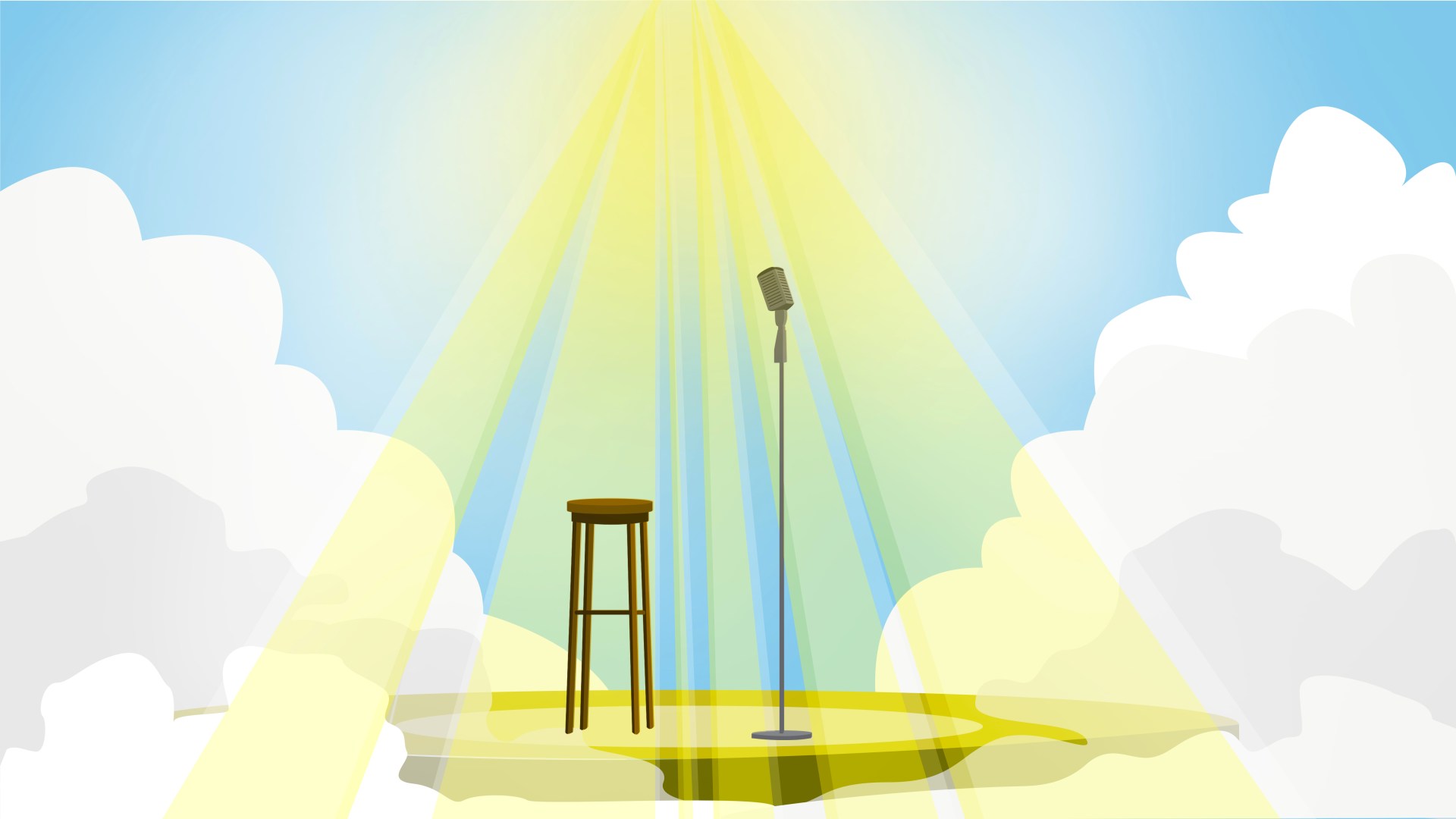When discussing Christianity and comedy, it’s usually not long before someone brings up G.K. Chesterton, who was renowned for his wit, playfulness, and love of paradox. (Even the great man’s physique—he was very tall and very plump—lent him a comedic air.) It is no surprise, then, that Steve Wilkens’s book What’s So Funny About God?: A Theological Look at Humor quotes Chesterton to make the point that “funny” and “serious” are not polar opposites.
Yet Chesterton, in his rhetorical masterpiece Orthodoxy, makes a somewhat out-of-character comment about Jesus Christ: “There was one thing that was too great for God to show us when He walked upon our earth; and I have sometimes fancied that it was His mirth.” The Bible, of course, teaches that God will not be mocked or taken for a fool (Gal. 6:7), and that he laughs at our rebellious rage (Ps. 2:4). Even so, it seems odd for Chesterton to suppose that Almighty God coming to earth as a helpless baby lacks something of a comic touch.
Christians, especially Protestants and evangelicals, are not renowned for their sense of humor. In medieval England (and across Europe), guilds would get together to stage stories from the Bible, which were often funny. These were casualties of the (otherwise much-needed) Reformation. As it took full effect in England, mystery plays disappeared, church walls were whitewashed, and Oliver Cromwell, despite a close friendship with master poet John Milton, shuttered every theater in the land.
Centuries later, it’s not just Christians suffering a humor deficit. It’s everyone. We live in strange times in which Snopes insists on fact-checking Babylon Bee headlines and presidential hyperbole. Jokes are often news. Books that help us understand comedy better, then, are always welcome, especially when they are highly readable and good fun. That’s what Wilkens has given us in this book.
He reckons Christians can and should be part of the solution. His book is not inviting us to laugh at God or the Bible. That would be very unwise. Instead, he asks us to take the text seriously, and as we do so, we find ourselves laughing along with it. Wilkens has entertaining chapters pointing out the many comedic moments in the Nativity and Easter stories. The book of Esther gets a full case-study treatment. And there are further chapters about finding comedy in everyday life.
Wilkens, a professor of theology and ethics at Azusa Pacific University, could have penned an august, weighty, and unreadable tome. Thankfully, he has written something far breezier and more enjoyable. Occasionally, he gets a little too colloquial, as when he pictures the Angel Gabriel addressing people as “Dude” or uses the term “spiritual superpowers.” But his arguments are clear, and the overall tone is warm and welcoming. This is important when everyone’s on edge about what we can and can’t laugh at.
There are short jokes, in grayed-out boxes, interspersed throughout the book. At first they might feel like a welcome light relief, but ultimately they suggest a lack of editorial confidence, as though the reader needs to be jollied along with gags (some of which are of dubious quality). They are occasionally relevant but mostly unnecessary. These interruptions can distract from the argument Wilkens is building. As a result, some of the longer chapters are difficult to follow, even though the individual sections within them are coherent and profound.
For example, Wilkens points out that humans laugh while animals don’t. This we know, unconvincing zoological examples notwithstanding. But Wilkens digs into the theological significance of ths fact, joining some dots that help us see comedy not as an optional extra, but something at the core of what it means to be human beings and divine image-bearers.
Jokes can have unintended consequences. This is often what makes people reluctant to attempt humor or risk a comic observation. But a well-placed joke can make everyone relax. A shared sense of humor can build a relationship and further a connection. In his epilogue, Wilkens explains how writing the book had unintended positive consequences. “As I read theology through the lens of humor,” he writes, “I discovered that I don’t just love God. I like God.”
Once you see God’s handiwork in the everyday, as well as in his image-bearers and in the pages of Scripture, this could be your reality as well. Given the overly serious times in which we live, it’s probably worth a try. Perhaps we can see God showing his mirth after all.
James Cary is a BBC sitcom writer, author of The Sacred Art of Joking (SPCK), and co-host of the Cooper and Cary Have Words podcast. He lives in the UK with his wife and two children.











